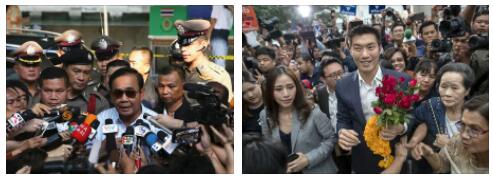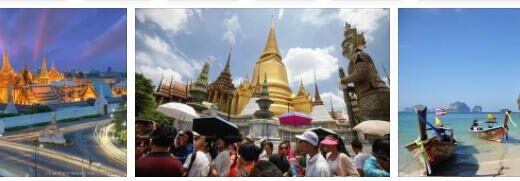Thailand Current Political Situation Part III
Vajiralongkorn: a scandal prince becomes king
Now it’s official: the new King of Thailand is Maha Vajiralongkorn, the eldest son of the late Bhumibol Adulyadej. The coronation was officially carried out in May 2019. The new king is highly controversial, partly because of his dissolute lifestyle, which is in stark contrast to the Buddhist-ascetic image of his father. For a long time there was an internal dispute between various factions of the royal family and the military about whether Vajiralongkorn or his sister, Sirindhorn, who is more popular, should become heir apparent. Vajiralong grain is a common gossip item in Thailand. One of the reasons for this is that he was divorced three times and had family members of his last wife thrown in prison. Rama X has now received direct (and tax-free) control over the Crown Property Bureau. His fortune is estimated at 100 billion euros. The unpopularity of the new king is a major image problem for the military junta. So they take action against critics all the more sharply. When pictures of Vajiralongkorn with a crop top and tattoos appeared in the Bild newspaper, the regime took action against critics who disseminated the pictures on social media. Because of a moderately critical contribution from the BBC, its Bangkok office was closed indefinitely. The future of the monarchy seems uncertain.
King Bhumibol is dead
After a reign of 70 years, King Bhumibol Adulyadej died at the age of 89. Hundreds of thousands of Thais have participated in funeral services. For his followers, King Bhumibol is considered a benevolent king who worked tirelessly for his people. They refer to his many development projects, his “philosophy” of self-sufficient economy and his balancing function in political conflicts in the country. Such an image of Bhumibol is also usually drawn in the western media. The military regime decreed a year of mourning for people should wear black clothing. This is now completed with the burning of the king.
Critics, on the other hand, see King Bhumibol as a key figure in a “ network monarchy ” in which the military, high-ranking officials and judges, and large corporations dominate the political system. Bhumibol’s role in cracking down on the student movement in 1976 is viewed very critically. At that time, the royal family supported three fascist movements: the Red Gaurs (urban thugs founded by the Thai military and made up of the lumpen proletariat), the paramilitary and anti-communist Village Scouts, and the reactionary Buddhist network Nawaphon. October 6, 1976 these forces attacked students at Thammasat University – hundreds were murdered, tortured or imprisoned. Bhumibol’s “frugal economy” is criticized as a Buddhist disguised austerity policy and compared with the monarch’s immense wealth. With his ” Crown Property Bureau ” Bhumibol was a multi-billionaire and the richest monarch in the world.
An open discussion about the monarchy is not possible in Thailand. Any criticism is quickly punished by the Lèse Majesté law. Even the “liking” of critical posts on Facebook is tracked. A man who made fun of Bhumibol’s dog, Tongdaeng, is sent to prison for years. After the death of Bhumibol, the monarchist mood in the country has become hysterical. People who did not wear black or who did not mourn “enough” have been persecuted and humiliated by angry mobs.
Tender blossoms of protest
The repression, observation and imprisonment of leaders of the “Front against Dictatorship and for Democracy” partly explains why the red shirts that formed against the military coup in 2006 have so far remained relatively calm. The fear of repression is too great – especially since the regime does not stop at the persecution of family members of activists. But despite repression and the illegalization of protests, hundreds of people have dared to demonstrate on the anniversary of the coup at the Democracy Monument in Bangkok. You belong to the “New Democracy Movement”, mainly from the critical student body originated and consciously differs from the Thai theory of colors. In the run-up to the referendum on the new constitution, small protests are now taking place almost daily, but these are quickly broken up by soldiers. Many of the young people who want to give their opinion on the new constitution are arrested and face lengthy sentences. Even after the elections, people are still protesting against the dictatorship – like at the “Run Against Dictatorship” in January 2020. In many cities outside of Thailand, too, people jogged against the military, around 13,000 in Bangkok alone – the largest protests since the 2014 coup.



